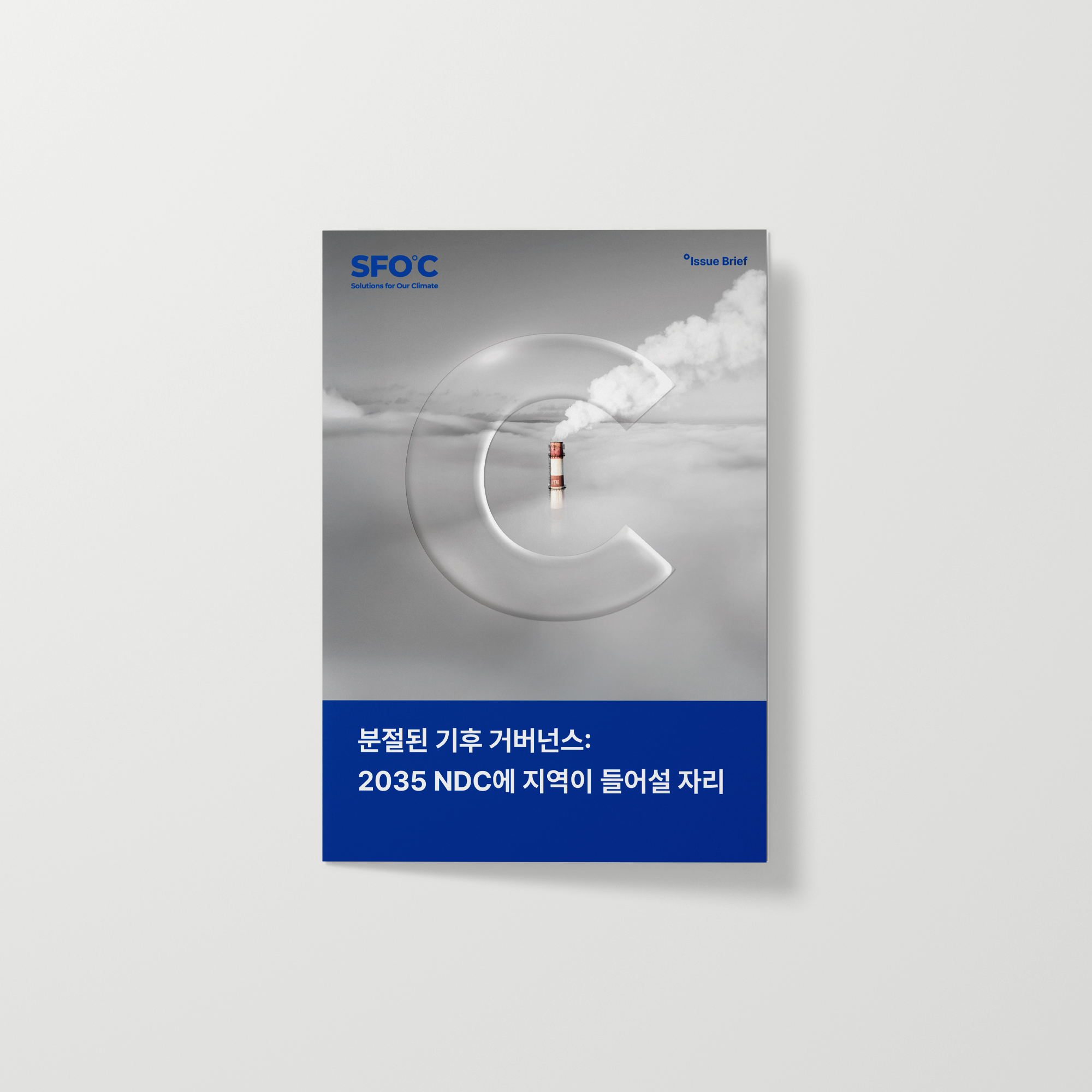
About
As nations prepare for COP30, calls for more meaningful local government participation are intensifying. Traditionally, NDCs have been created through top-down processes, with limited local input. However, as implementation challenges increase, locally informed strategies are gaining recognition, leading to greater momentum for more inclusive, multi-level governance.
Executive summary
As Korea develops its 2035 Nationally Determined Contribution (NDC), the participation of local governments remains limited. Without reflecting the roles and experiences of local actors, NDC targets risk lacking both implementation and legitimacy. Globally, efforts to institutionalize subnational engagement in climate policymaking are gaining momentum, with pioneering examples already emerging. Korea must now establish a dedicated framework that enables local governments to participate from the early stages of NDC formulation, and these efforts must be explicitly reflected in the NDCs. At the same time, local governments should develop their own ambitious climate targets and take ownership of implementation. A shift toward inclusive, multi-level climate governance is key to closing the gap between Korea’s current NDCs and the ambition needed to meet the Paris Agreement’s 1.5°C goal.
Key findings
Establishing a Consultation Framework for Subnational Engagement in the NDC Process
The NDC formulation process has largely been centralized, with local governments, despite being key implementers, lacking opportunities for early involvement. Simply adding local governments to existing public consultations risks overwhelming already limited discussion space. Therefore, a separate consultation framework tailored to local governments—such as regular workshops or technical working groups—should be established. This structure would not only improve the NDC formulation process but also strengthen policy alignment between national and local governments during the implementation and monitoring stages.
Specifying the Role and Consultation Process of Local Governments in NDCs
Local governments, being the most familiar with regional resources and needs, can help set more reliable and specific targets if their plans and experiences are incorporated into the national NDC. This would enable the development of tailored strategies that consider regional characteristics and promote more effective climate action. Notably, Korea is one of the over 70 countries that have signed the CHAMP pledge, which calls for stronger collaboration with local governments in the development, financing, implementation, and monitoring of climate strategies, including NDCs. The Korean government must honor and uphold this commitment.
Enhancing Accountability at the Local Level
The climate crisis is a complex issue that cannot be addressed by any single level of government. It requires autonomy and accountability at the regional level. To this end, each local government should set carbon neutrality and adaptation targets that align with or exceed national goals and develop climate strategies tailored to local conditions. For example, Chungnam has set a carbon neutrality target for 2045, Jeju for 2035, and Gyeonggi is pursuing various policies, including climate tech, climate insurance, and Gyeonggi RE100. Such a proactive role by local governments is a key force in advancing climate action.



